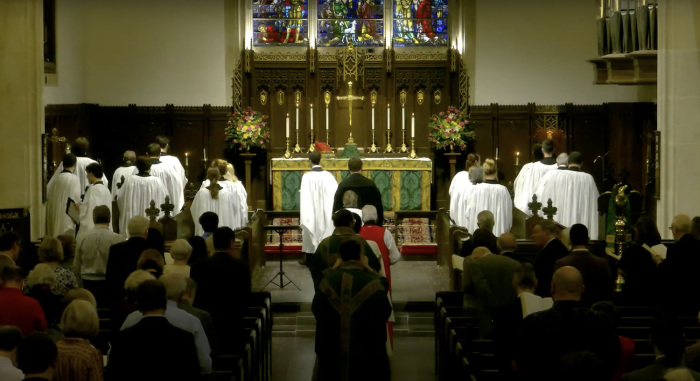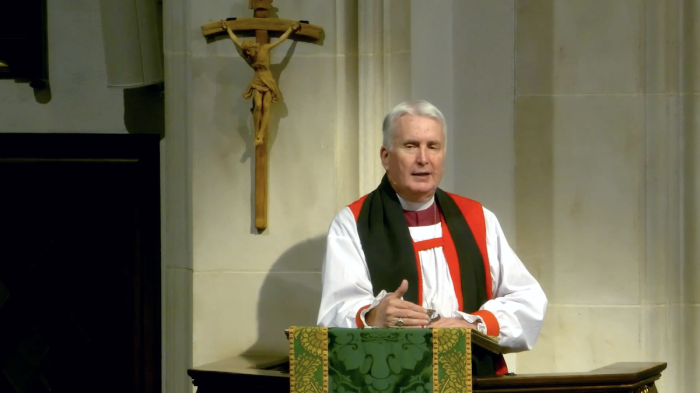In Dallas, this megachurch is Episcopalian

God isn’t quite done with the Episcopal Church.
That was my impression after a recent trip to Texas took me to the Church of the Incarnation in Dallas.
Admittedly, this part of the country is still culturally Christian. The parking lots of most churches across all denominations are considerably fuller than their counterparts elsewhere.
Still, there is something remarkable about Incarnation. Going here feels like taking a time machine back to the 1950s when the Episcopal Church and other mainline Protestant denominations were at their peak.
For Episcopalians, this parish in the Diocese of Dallas is a megachurch. Membership in 2023 was 5,094 souls, with average Sunday attendance just shy of 1,000, according to official denominational statistics.
Located north of downtown Dallas in the aptly named Uptown neighborhood, the church is bounded by the three-lane McKinney Avenue on one side and the North Central Expressway, also known as U.S. Highway 75, on the other.
As visitors quickly discover, Incarnation is no ordinary church. It’s a campus — a modern iteration of an enclosed pre-Reformation monastic community. All that’s missing is a fortified wall and moat surrounding the precinct.
The multiple buildings connected by an enclosed cloister are constructed of vanilla or maybe cream bricks. Forget the Welcome Center, part of a nearly 10-year-old addition. For traditional services, the everyday entrance is the vaguely Gothic main church.
I say vaguely because the cast stone facade, pointed arches and pinnacles are more decorative and less true Gothic revival. What you see certainly won’t be confused with the ecclesiastical designs of Ralph Adams Cram and A.W.N. Pugin. Fortunately, the interior makes up for the lack of curb appeal. Beyond the nave (what many mistakenly call a sanctuary) are north and south transepts and a square apse at the east end, a telltale sign of English Gothic. The central feature above the altar, where clergy still stand ad orientem or eastward, is a glorious stained-glass window with generous amounts of tracery.
A typical Sunday worship schedule features five separate services of holy communion — three traditional, two contemporary — using the rites of the 1979 Book of Common Prayer.

I found myself in the pews on Nov. 17, when the Right Rev. Gregory Brewer was on his second week as interim rector. Brewer, a longtime acquaintance and occasional correspondent of mine on Facebook, had been in retirement since last year after giving up his miter and crozier following an 11-year stint as the bishop of the Diocese of Central Florida, whose see city is Orlando.
“The thing about answering God’s call is you never know when He’s going to call,” the prelate said to a nearly full nave of congregants at the morning’s second traditional service.
If you go
Besides five services of holy communion, there’s a service of choral evensong every Sunday at 5 p.m. There are also weekday services for those who find themselves in Dallas for work. For Christmas Eve, a parish calendar shows at least four services, including the principal service at 10:30 p.m.
The closest recommended hotel is the Canopy by Hilton Dallas Uptown. For something a little more unique, the independent four-star Hotel Crescent Court won’t disappoint.
Dennis Lennox writes a travel column for The Christian Post.




























